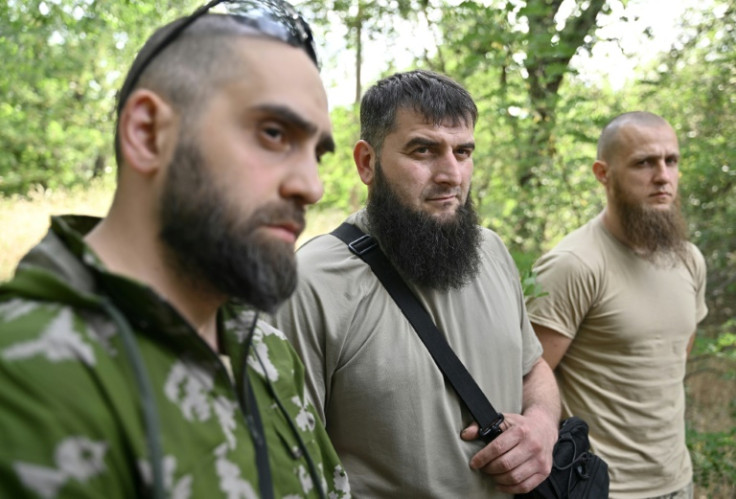The Chechens Fighting Russia On The Front Line

Islam is not just another soldier.
"If the Russians take me, I won't be exchanged", said the Chechen fighting with the Ukrainian army near the front line.
The 33-year-old dissident, a refugee who has been in Poland for nearly two decades, joined the Sheikh Mansur battalion in April. Founded in 2014 following Russia's annexation of Crimea, the unit is mostly made up of veterans of the Chechen wars.
It takes its name from the 18th-century Chechen military commander who fought against Russian expansion in the Caucasus -- a reminder that the Chechen campaign for independence is not new.
"Several hundred" men with shaven heads and long beards like Islam have volunteered to help Ukraine fend off Russia's invasion.
Islam did not reveal exactly how many troops there are in the battalion, or where they are stationed.
He wants to keep their identities secret for fear of reprisals against relatives in Chechnya.
Because just across the front line, there are Chechens loyal to the Kremlin serving with the "Kadyrovites" -- Chechen militias with a sinister reputation, deployed alongside Russian troops.
They are said to be 8,000 fighters -- a figure that has not been verified.
"We want to show that not all Chechens are like them -- many of us see the Russians as aggressors and occupiers," said Islam as bomb sirens blared.
For him, the war here has an air of deja vu.
"It's like a journey into the past, a continuation of what started in the Caucasus," he said calmly, getting out of a van with a broken windscreen and a hurried spray paint job.
Chechnya's capital, Grozny, destroyed by Russian bombs more than two decades ago, suffered a fate similar to that of Mariupol.
The small Muslim-majority republic was ravaged by two brutal wars. The last, begun by Russian President Vladimir Putin in 1999, led to the installation of Chechnya's strongman Ramzan Kadyrov, who has been accused of ruthlessly suppressing opposition.
As a result, a Chechen diaspora of an estimated 250,000 people has formed in Europe, Turkey and the UAE.
"I decided to join the battalion (for) the honour of the Chechens Moscow is trying to pass off as terrorists," said Islam, who has received threats for documenting alleged Russian war crimes online.
He takes orders from Deputy Commander Mansour, a battle-scarred 40-year-old soldier.
"Two of us have been killed and others injured. But it's important we're here," Mansur said. "We have things to teach the local soldiers about war."
The Chechen fighters are not officially part of the Ukrainian army. The equipment they use has been recovered from the Russians, and they are fed by locals, mostly Orthodox Christians, who seem to have taken kindly to them.
"We're not here to impose Islamic beliefs -- we're here to fight a common enemy and defend freedom," said Mansour.
© Copyright AFP 2025. All rights reserved.





















